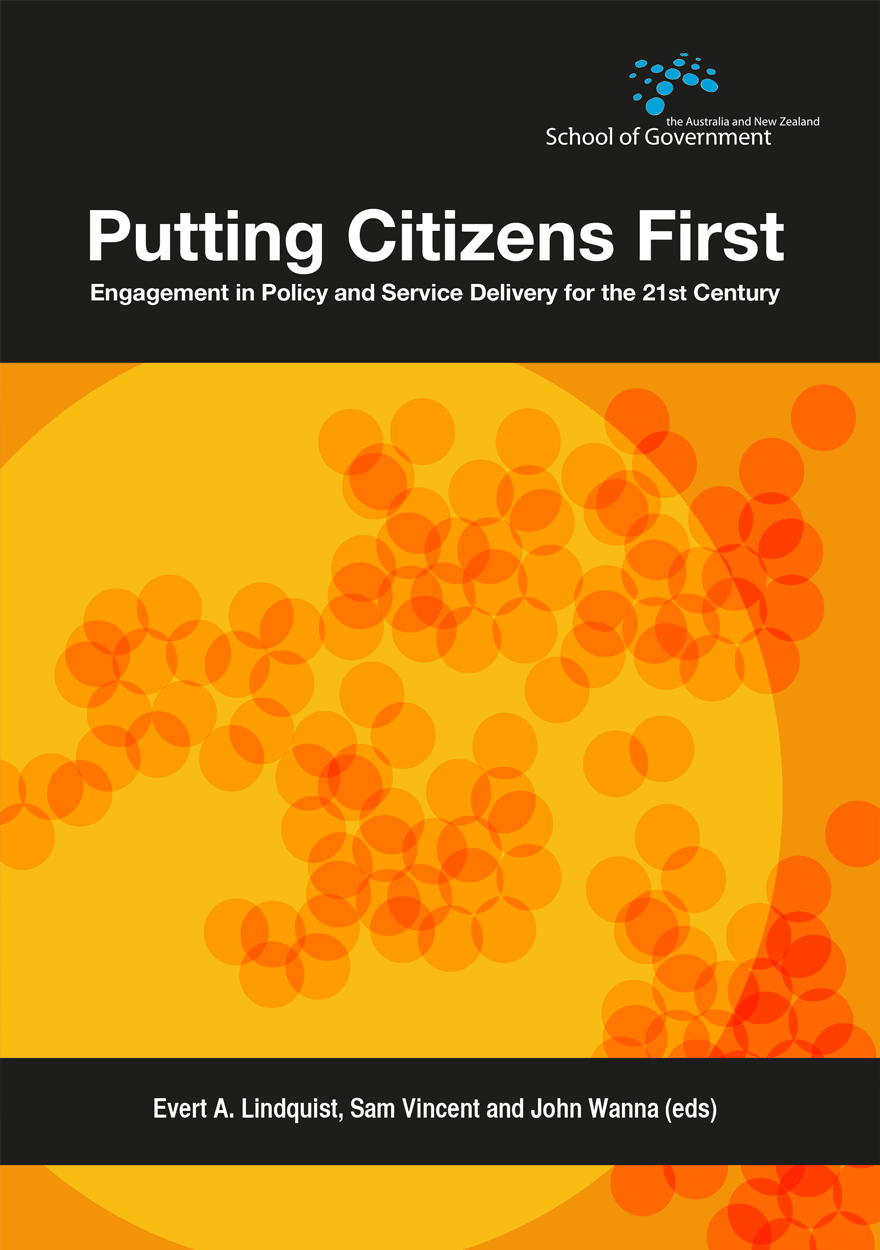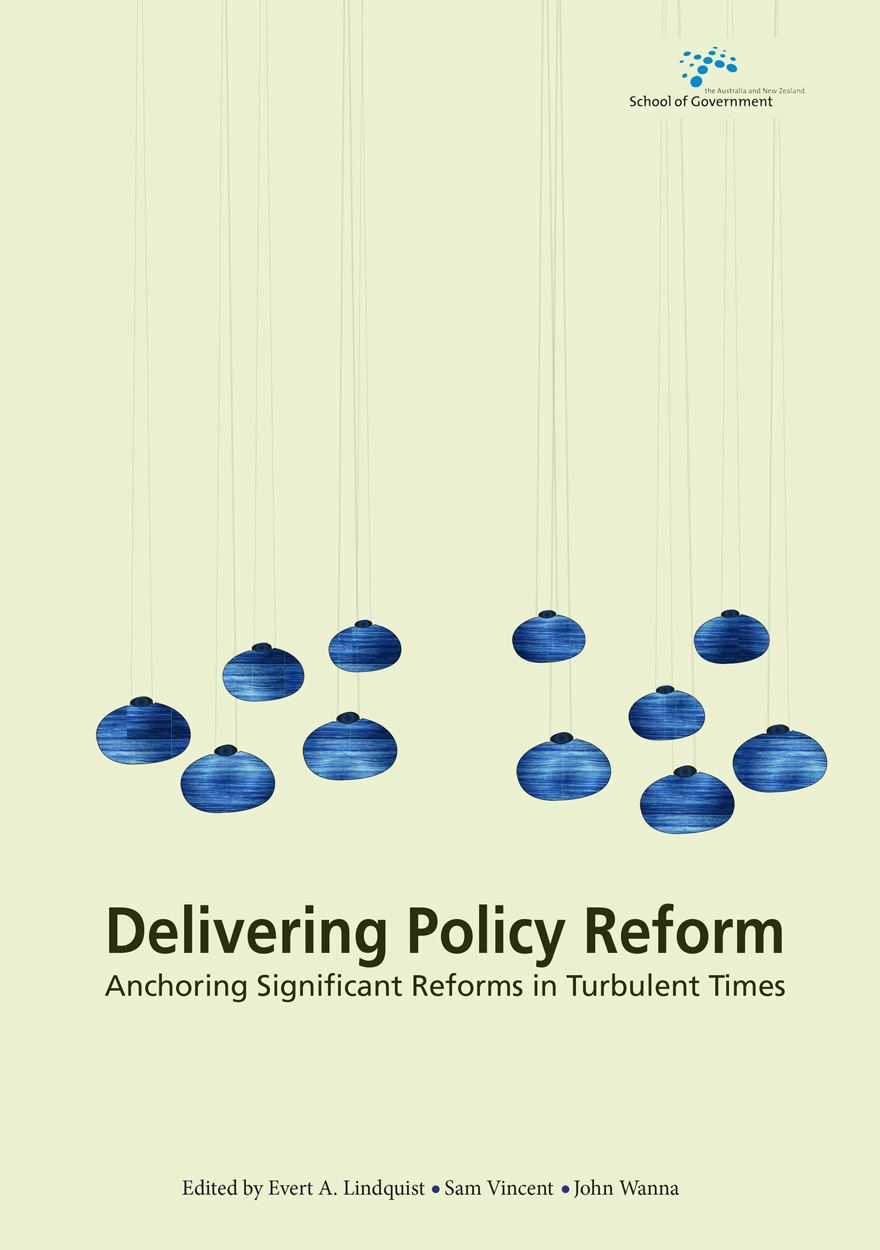Sam Vincent
Sam Vincent is commissioning editor at the Australia and New Zealand School of Government.

Politics, Policy and Public Administration in Theory and Practice »
Essays in Honour of Professor John Wanna
Publication date: June 2021
This festschrift celebrates the extensive contribution John Wanna has made to the research and practice of politics, policy and public administration.
It includes both personal acknowledgements of his work and substantial essays on the issues that he focused most closely upon during his academic career: budgeting and financial management, politics, and public policy and administration.
The essays address contemporary developments in public sector financial management in Australia and overseas, changing political processes in Queensland and the Commonwealth, and public governance and administration reform trajectories in Australia and internationally, including in China.
A common theme is the importance of linking research to practice, reflecting John Wanna’s own style and contribution. Essays include exploration of the interface between academia and practice, including from the perspective of practitioners.
The authors of the essays in this volume include eminent Australian and international scholars of public administration, experienced public service practitioners and younger scholars influenced by John Wanna.

Opening Government »
Transparency and Engagement in the Information Age
Edited by: John Wanna, Sam Vincent
Publication date: April 2018
Transparency and citizen engagement remain essential to good government and sound public policy. Indeed, they may well be the key to restoring trust in government itself, currently at an all-time low in Australia. It is ironic, then, that this has occurred at a time when the technological potential for information dissemination and interaction has never been greater.
Opening Government: Transparency and Engagement in the Information Age explores new horizons and scenarios for better governance in the context of the new information age, focusing on the potentials and pitfalls for governments (and governance more broadly) operating in the new, information-rich environment. Its contributors, a range of international and Australian governance academics and practitioners, ask what are the challenges to our governing traditions and practices in the new information age, and where can better outcomes be expected using future technologies. They explore the fundamental ambiguities extant in opening up government, with governments intending to become far more transparent in providing information and in information sharing, but also more motivated to engage with other data sources, data systems and social technologies.

Putting Citizens First »
Engagement in Policy and Service Delivery for the 21st Century
Publication date: August 2013
This book explores the ways in which governments are putting citizens first in their policy-making endeavours. Making citizens the focus of policy interventions and involving them in the delivery and design is for many governments a normative ideal; it is a worthy objective and sounds easy to achieve. But the reality is that putting citizens at the centre of policy-making is hard and confronting. Are governments really serious in their ambitions to put citizens first? Are they prepared for the challenges and demands such an approach will demand? Are they prepared to commit the time and resources to ensure genuine engagement takes place and that citizens’ interests are considered foremost? And, more importantly, are governments prepared for the trade-offs, risks and loss of control such citizen-centric approaches will inevitably involve?
The book is divided into five parts:
setting the scene: The evolving landscape for citizen engagement
drivers for change: Innovations in citizen-centric governance
case studies in land management and Indigenous empowerment
case studies in fostering community engagement and connectedness
case studies engaging with information technology and new media.
While some chapters question how far governments can go in engaging with citizens, many point to successful examples of actual engagement that enhanced policy experiences and improved service delivery. The various authors make clear that citizen engagement is not restricted to the domain of service delivery, but if taken seriously affects the ways governments conduct their activities across all agencies. The implications are enormous, but the benefits to public policy may be enormous too.

With the Benefit of Hindsight »
Valedictory Reflections from Departmental Secretaries, 2004–11
Publication date: April 2012
Secretaries of government departments in Australia are the bureaucratic leaders of their generation. They are ambitious, highly-talented executives who have risen to the very pinnacle of their chosen vocation – public service to the Australian nation – usually after having spent most, if not all, of their professional careers dedicated to the public service. They serve governments as their top advisers and in policy terms are often some of the most important decision-makers in the country.
This collection brings together the valedictory speeches and essays from a departing group of secretaries (and one or two other equivalent agency heads) who left the Australian Public Service between 2004 and 2011. Over this period of time it gradually became accepted that departing secretaries and heads of significant agencies would present a valedictory address to their peers at a public farewell function. The first two speeches in this collection were initiated informally and given at functions organised by their agencies; in 2005 the process was formalised with the Australian Public Service Commission acting as organiser.
These contributions contain reflections, commentaries, occasional fond memories or key turning-points in careers, critiques of changes that have occurred and an outline of the remaining challenges their successors will face as the public administrators of tomorrow.
From the outset it is clear that there is no uniform message, no single narrative levelled either in praise or in criticism, other than pride in the public service and strong belief in the contribution it makes to the Australian community. They have their own personal ‘takes’ on how the public service looks to them, on its performance and on the challenges confronting public administration into the future. Most spend some time looking back, reflecting on the extent of change that has occurred over the length of their careers; but equally importantly they look forward, anticipating future policy dilemmas and capacity challenges.

Delivering Policy Reform »
Anchoring Significant Reforms in Turbulent Times
Publication date: April 2011
Predictable and unpredictable challenges continually confront the policy settings and policy frameworks of governments. They provide a constantly changing dynamic within which policy-making operates. Governments at all levels are asking their public services to identify innovative and workable reforms to anticipate and address these challenges. Public service leaders around the world are struggling not only to better anticipate emerging demands but also to address reform backlogs. However, time and time again, major policy reforms can prove tough to implement – especially in turbulent environments – and even tougher to anchor over time. This leads to considerable uncertainty and inefficiency as governments and policy communities try to keep pace with change. Policies that unravel or are dismantled are costly and represent wasted opportunities. They lead to cynicism about the effectiveness of governments and public service advice more generally, making it more difficult to deal with other emerging challenges.
This volume of proactive essays on delivering policy reform offers an intriguing blend of strategic policy advice and management insight. It brings together a diverse range of highquality contributors from overseas as well as from Australia and New Zealand – including national political leaders, public service executives, heads of independent agencies, and leading international scholars.



